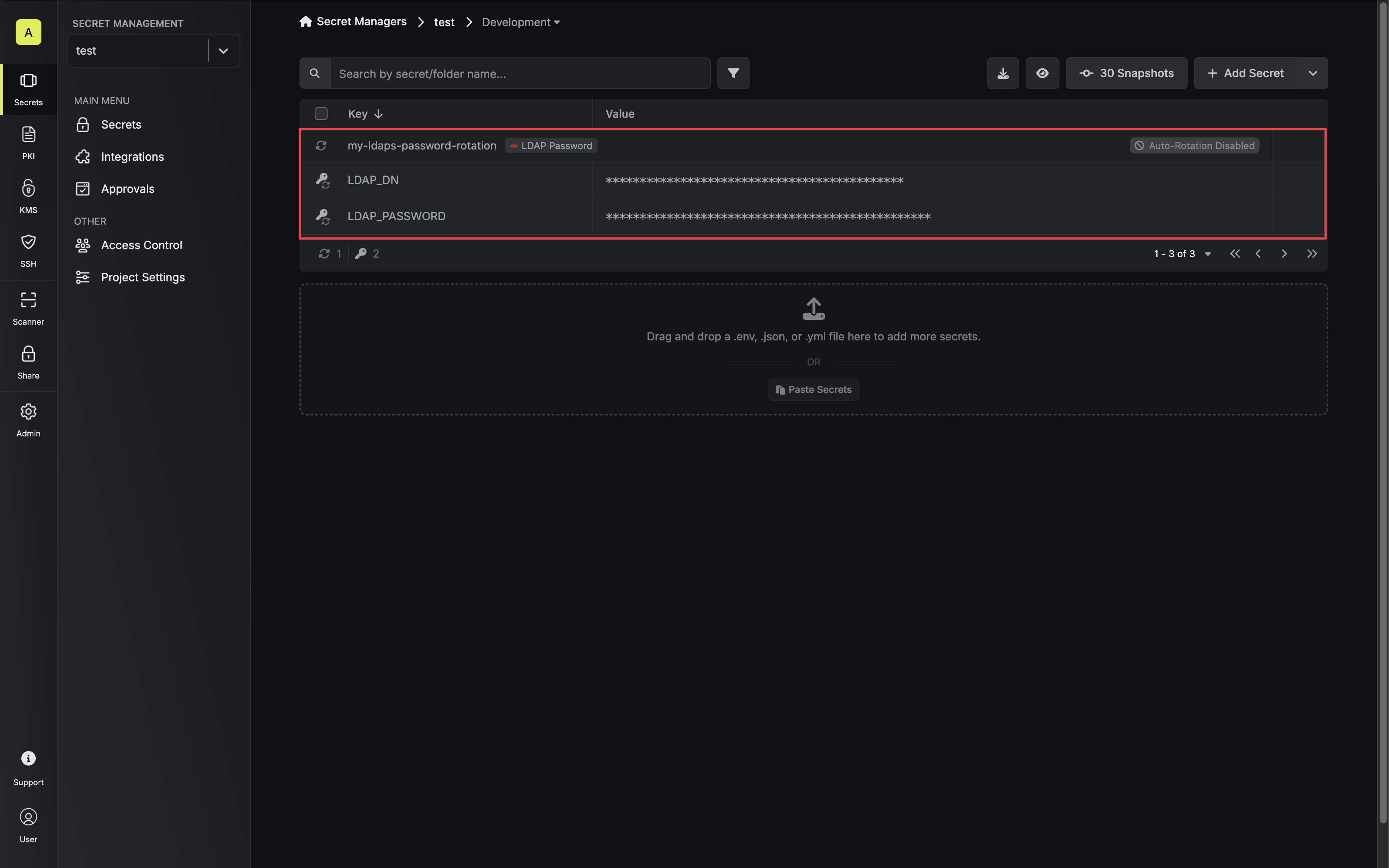Rotation Type: Single-PhaseThis rotation updates a single credential set in place. Old credentials become invalid immediately upon rotation. This means that clients using the previous credentials will fail to authenticate until they retrieve the new credentials.This is a limitation of the LDAP provider and cannot be rectified by Infisical.
Prerequisites
- Create an LDAP Connection with the Secret Rotation requirements
- Ensure your network security policies allow incoming requests from Infisical to this rotation provider, if network restrictions apply.
Create an LDAP Password Rotation in Infisical
- Infisical UI
- API
-
Navigate to your Secret Manager Project’s Dashboard and select Add Secret Rotation from the actions dropdown.
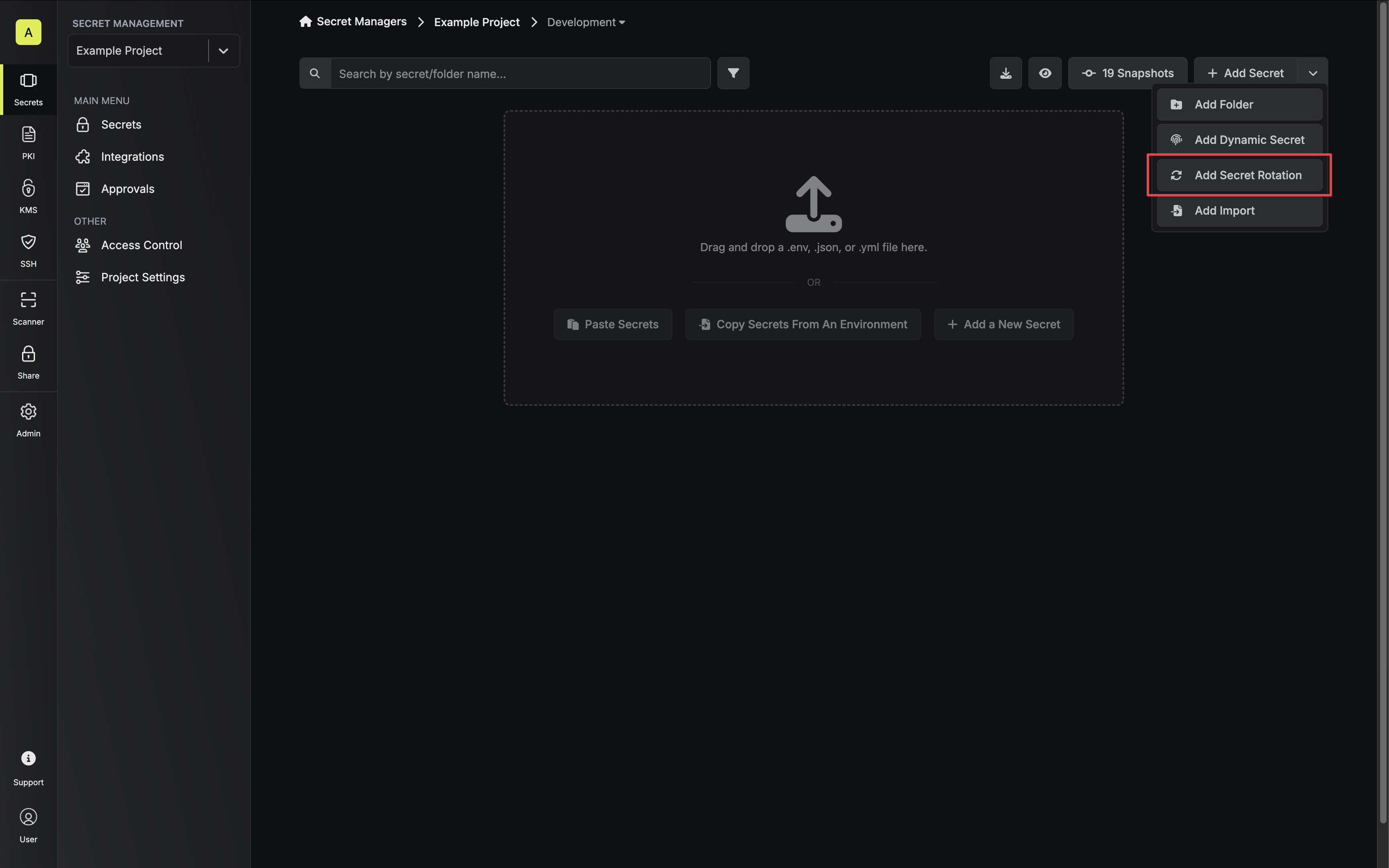
-
Select the LDAP Password option.
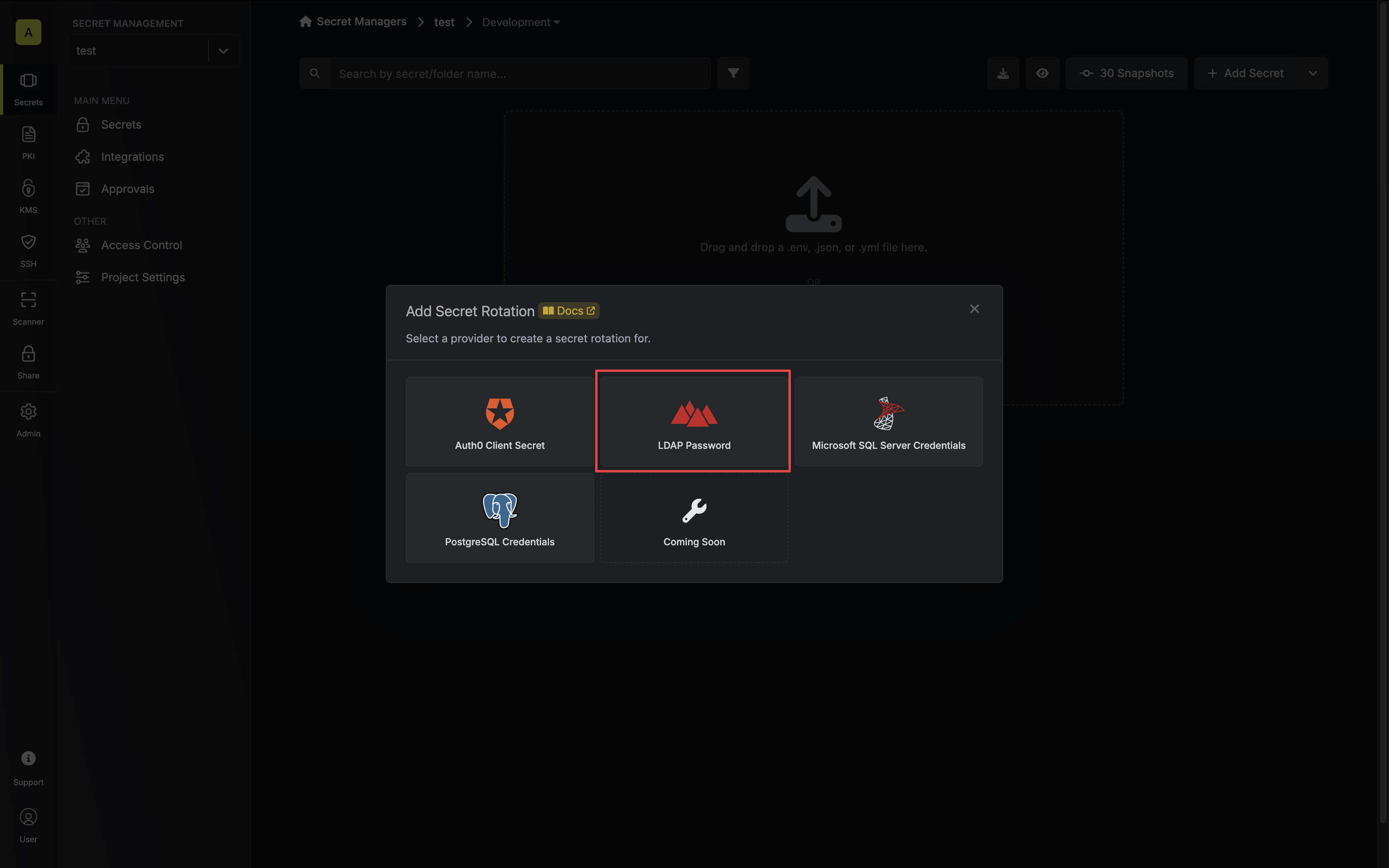
-
Select the LDAP Connection to use and configure the rotation behavior. Then click Next.
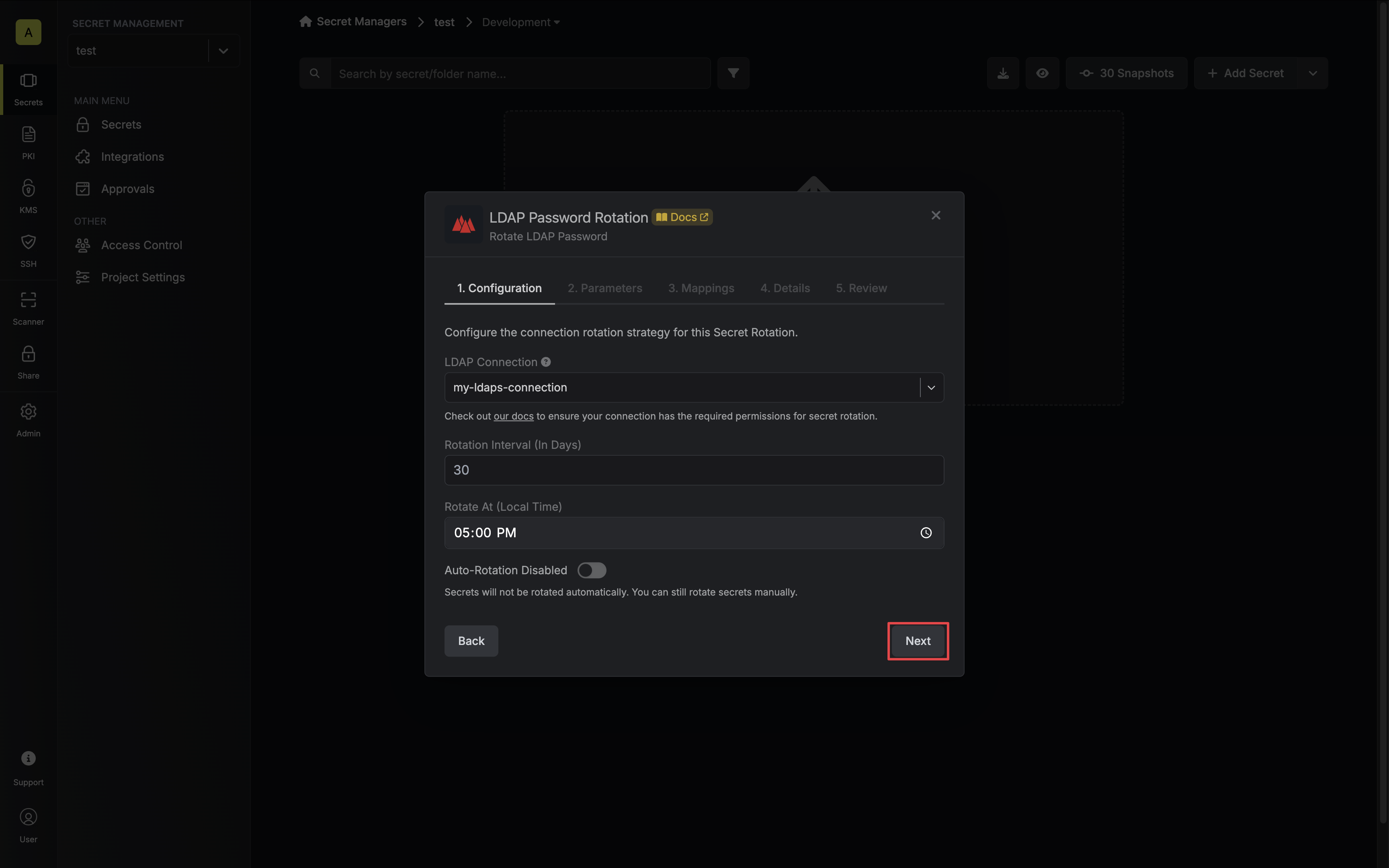
- LDAP Connection - the connection that will perform the rotation of the configured principal’s password.
LDAP Password Rotations require an LDAP Connection that uses ldaps:// protocol.- Rotation Interval - the interval, in days, that once elapsed will trigger a rotation.
- Rotate At - the local time of day when rotation should occur once the interval has elapsed.
- Auto-Rotation Enabled - whether secrets should automatically be rotated once the rotation interval has elapsed. Disable this option to manually rotate secrets or pause secret rotation.
Due to LDAP Password Rotations rotating a single credential set, auto-rotation may result in service interruptions. If you need to ensure service continuity, we recommend disabling this option. -
Configure the required Parameters for your rotation. Then click Next.
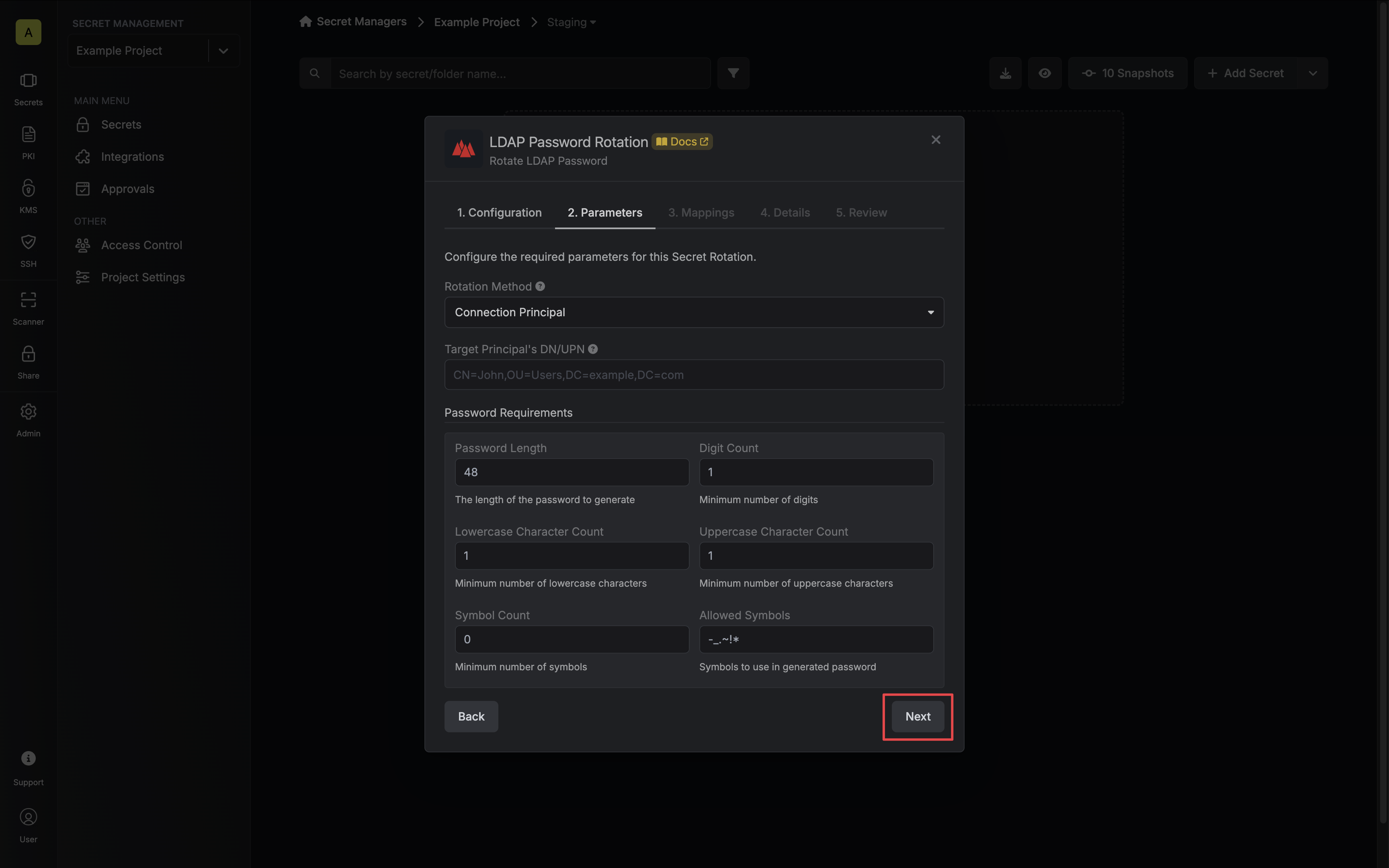
- Rotation Method - The method to use when rotating the target principal’s password.
- Connection Principal - Infisical will use the LDAP Connection’s binding principal to rotate the target principal’s password.
- Target Principal - Infisical will bind with the target Principal to rotate their own password.
- DN/UPN - The Distinguished Name (DN), or User Principal Name (UPN) if supported, of the principal whose password you want to rotate.
- Password - The target principal’s password (if Rotation Method is set to Target Principal).
- Password Requirements - The constraints to apply when generating new passwords.
-
Specify the secret names that the client credentials should be mapped to. Then click Next.
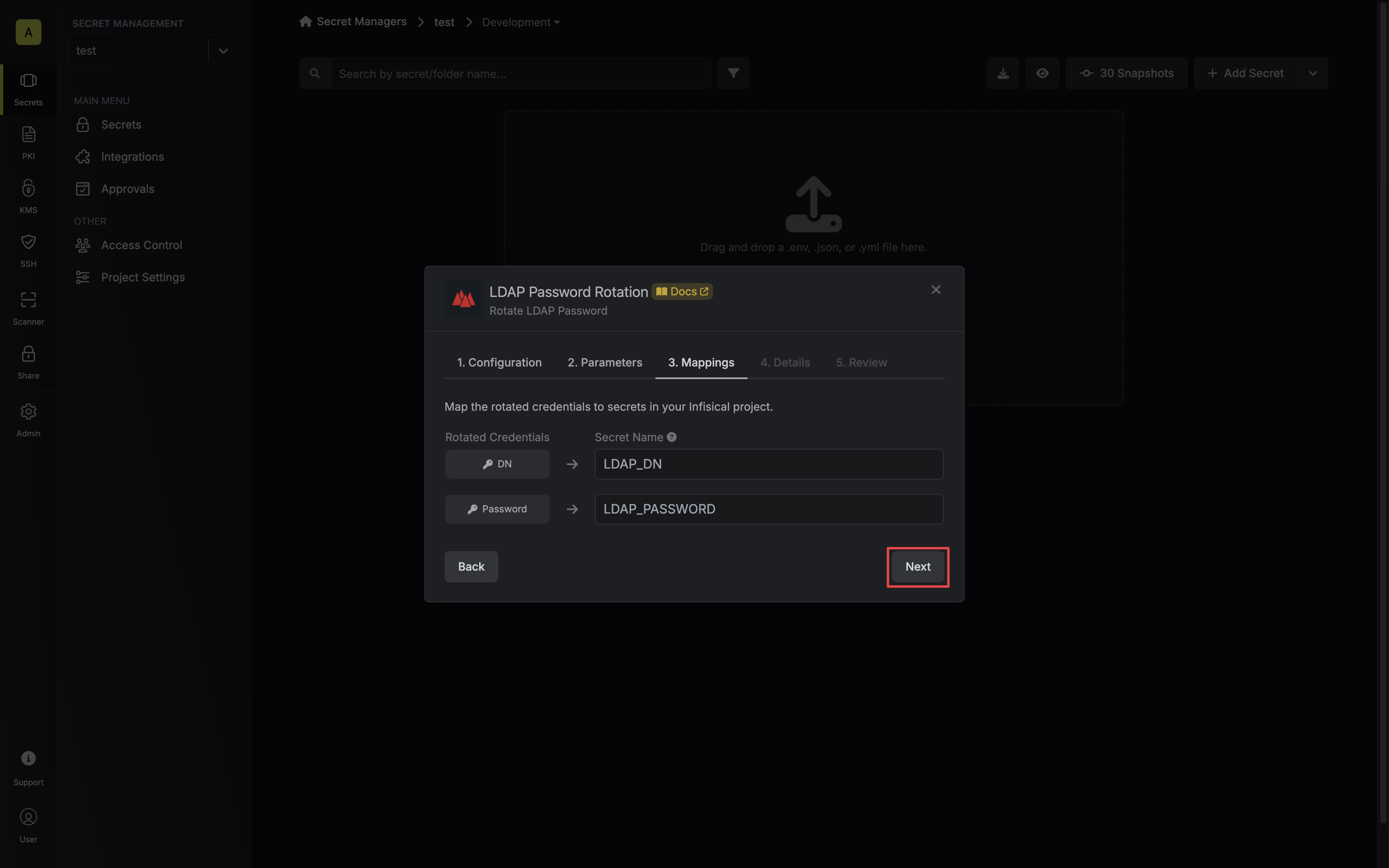
- DN/UPN - the name of the secret that the principal’s Distinguished Name (DN) or User Principal Name (UPN) will be mapped to.
- Password - the name of the secret that the rotated password will be mapped to.
-
Give your rotation a name and description (optional). Then click Next.
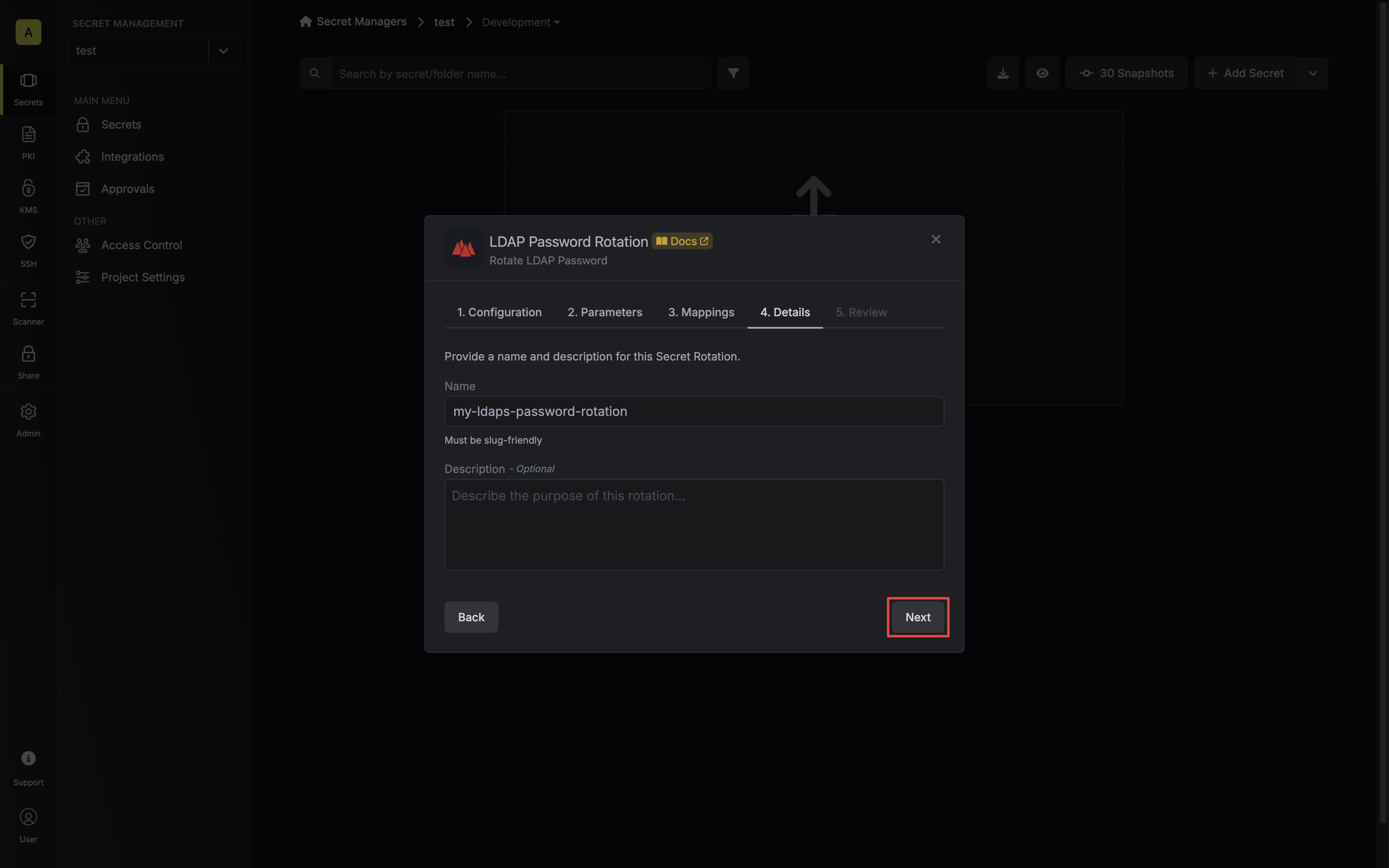
- Name - the name of the secret rotation configuration. Must be slug-friendly.
- Description (optional) - a description of this rotation configuration.
-
Review your configuration, then click Create Secret Rotation.
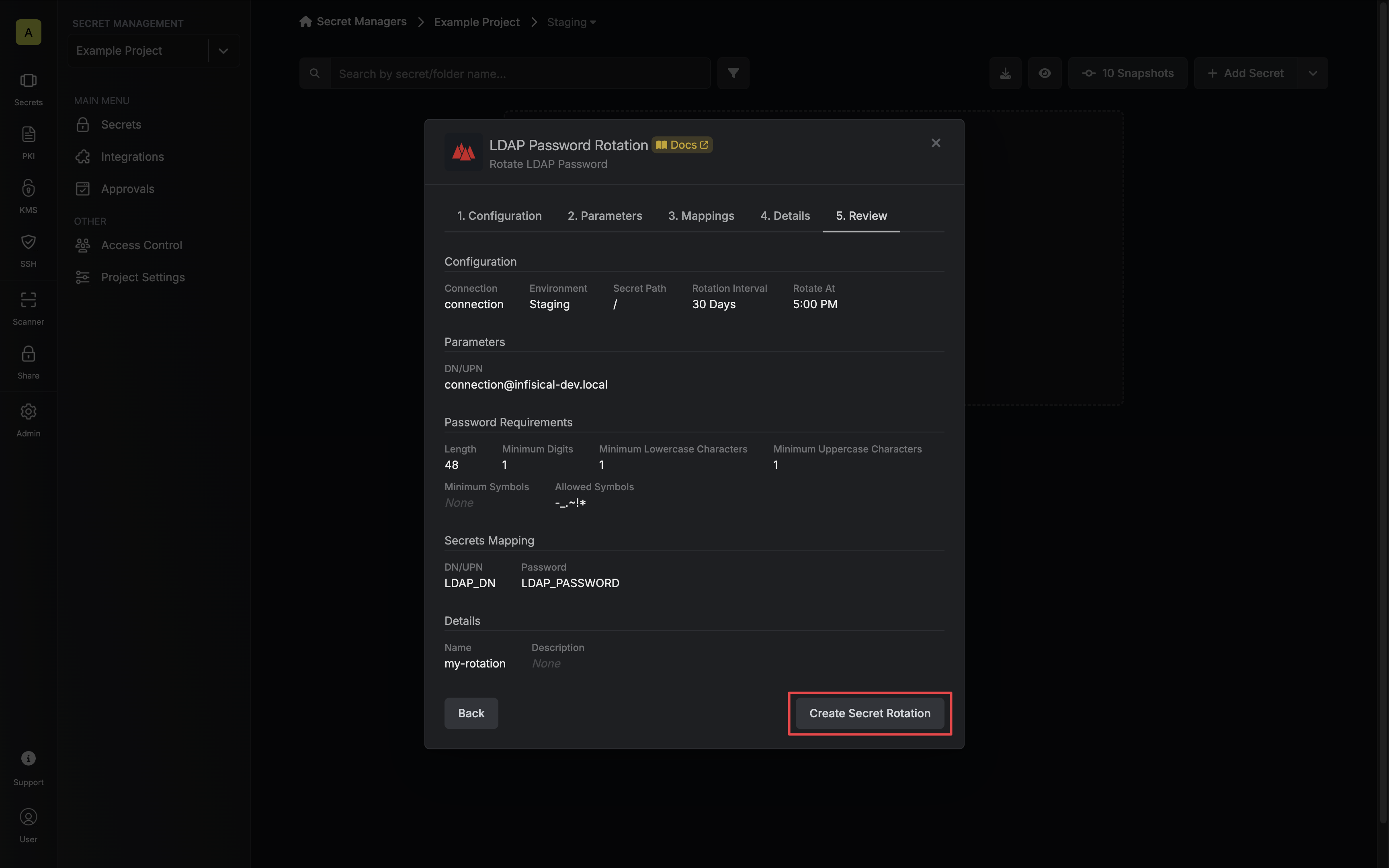
-
Your LDAP Password credentials are now available for use via the mapped secrets.
